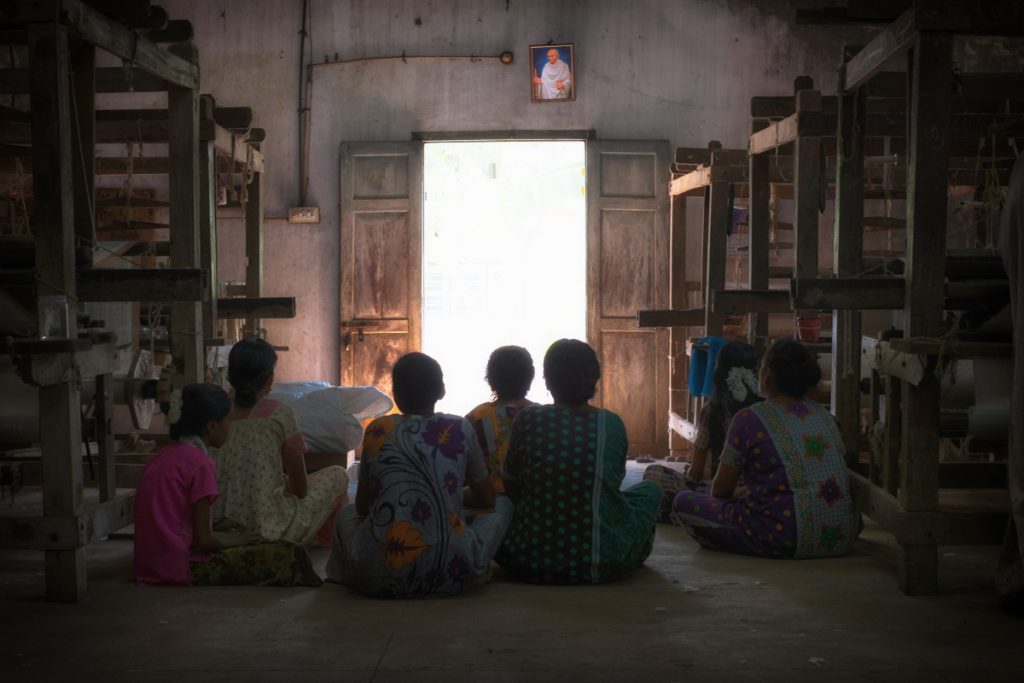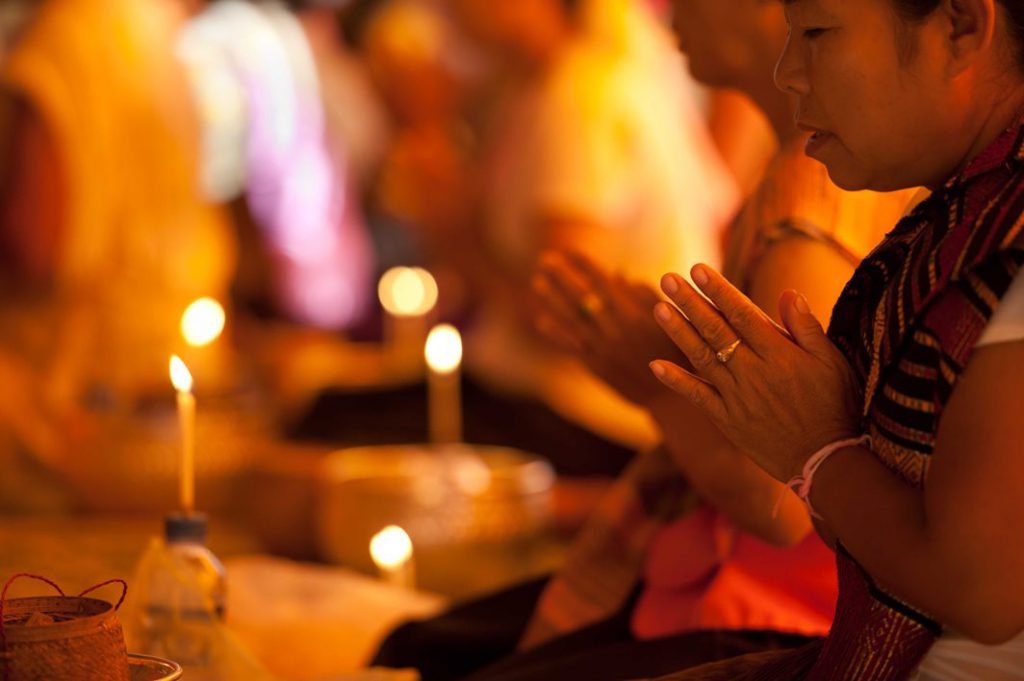You can read the Part 1 of this series here
In the Part 1 of this series, we saw how beautifully Poonthanam describes the transient and ephemeral aspects of human life. Let’s now look at the next few verses here in the Part 2.
അധികാരഭേദം (Quality of Apprehending the Truth)
കണ്ടാലൊട്ടറിയുന്നു ചിലരിതു
കണ്ടാലും തിരിയാ ചിലർക്കേതുമേ
കണ്ടതൊന്നുമേ സത്യമല്ലെന്നതു
മുൻപേ കണ്ടിട്ടറിയുന്നിതു ചിലർ
മനുജാതിയിൽ തന്നേ പലവിധം
മനസ്സിന്നു വിശേഷമുണ്ടോർക്കണം
പലർക്കുമറിയേണമെന്നിട്ടല്ലോ
പലജാതി പറയുന്നു ശാസ്ത്രങ്ങൾ
കർമ്മത്തിലധികാരി ജനങ്ങൾക്കു
കർമ്മ ശാസ്ത്രങ്ങളുണ്ടു പലവിധം
കർമ്മശാസ്ത്രങ്ങൾ യോഗങ്ങളെന്നിവ
സംഖ്യയില്ലതു നിൽക്കട്ടെ സർവ്വവും
[Kandaal ottariyunnu chilarithu
Kandaalum thiriyaa chilarkkethume
Kandathonnume sathyamallennathu
Mumbe kandittariyunnithu chilar
Manu jaathiyil thanne palavidham
Manassinnu visheshamundorkanam
Palarkkum ariyenam ennittallo
Pala jaathi parayunnu saasthrangal
Karmathiladhikaari janangalkku
Karma saasthrangalundu palavidham
Saankhya Shastrangal yogangal enniva
Sankhyayillathu nilkkatte sarvavum]
Some people see this truth (that our life is so transient) and are able to embrace it
Some others are unable to comprehend this truth even though they know it
There are some others who know that whatever they see is
not real, but just maya – an illusion.
There are many types of people among us
We should always remember that
There are many people who wish to know this truth (transient nature of life,
the mystery of god, etc.)
And many Shastras talks about all these in many different ways.
For those people who are entrusted to do various karamaas (duties)
There are several different Shastras
Saankhya Shastra, Yoga Shastra, etc. are some of them
However, for a moment, let us put aside all of those Shastras.
Here, Poonthanam categorizes human beings into three: Uttama Purusha, Madhyama Purusha and Adhama Purusha. Uthama Purushas are the wisest people who understands the ephemeral nature of human life. The poet uses the word “chilar”, meaning “rare”, acknowledging that this category of people are very rare. Madhyama Purushas are the reasonably wise people who are able to see the transient nature of life, for e.g. especially when they or their loved ones go through the ups and downs of life. Adhama Purushas are the last category of people who are unable to see or comprehend the transient nature of life and are usually interested only in chasing all the material aspects of life – money, power, control, etc. (but not the real knowledge or wisdom), forgetting the real purpose of human life, which is to attain liberation. This category of people do not see the cause and effect of life – that they are directly responsible for the consequences of their deeds and even thoughts.
മനുജാതിയിൽ തന്നേ പലവിധം
മനസ്സിന്നു വിശേഷമുണ്ടോർക്കണം
പലർക്കുമറിയേണമെന്നിട്ടല്ലോ
പലജാതി പറയുന്നു ശാസ്ത്രങ്ങൾ
[Manu jaathiyil thanne palavidham
Manassinnu visheshamundorkanam
Palarkkum ariyenam ennittallo
Pala jaathi parayunnu saasthrangal]
Through these beautiful lines, Poonthanam reminds us about the unique individual that we are! The poet says, we must always remember that, there are millions of people around us, each one different from one another. He also implies that, we, human beings are very different from all other living beings. We have Buddhi – the spiritual awareness to differentiate what is real and what is unreal – and Jnana – the power of discrimination to differentiate between the atma – the eternal soul – and our ever changing physical body. We have the ability to discriminate between good and bad, to be a better person, to be better from Adhama Purusha to Uttama Purusha, and to gradually attain liberation, unlike animals and other living beings.

Image source: joshch.com
We can never expect a tiger prowling for food to befriend a fawn that has bumped into him, telling himself, “Oh poor, helpless fawn, I shall not eat him…” However, human beings have the ability to think and change our attitudes and be better human beings, be kind and compassionate. We also have the ability to choose the company of good people – സജ്ജനസംഭർക്കം [sajjanasambarkkam] – as it influences what kind of person we become, like this Malayalam proverb suggests, “ചന്ദനം ചാരിയാൽ ചന്ദനം മണക്കും, ചാണകം ചാരിയാൽ ചാണകം മണക്കും” [Chandanam Chaariyaal Chandanam Manakkum, Chaanakam Chaariyaal, Chaanakam Manakkum] – Lie down with dogs, wake up with fleas. We know that.
The poet, after describing how different each one of us are, continues to talk about the existence of different Shastras (treatise, scriptures). He says, there are various Shastras talking about the same things in many different ways to help us understand the meaning of life, the mystery of God, recognizing what is real and what is unreal, etc., however, what Shastras we choose depends on our own circumstances, attitudes and the person that we are – uttama purusha, madhyama purusha or adhama purusha.
There are many religions, many belief systems and faiths in this world. We may follow different faiths and paths, but ultimately, all of us are heading towards the same goal – to reach our source, to return back home – to merge with the One, however you identify that One. We may choose one or many ways to advance spiritually. In the Gita, Krishna says;
ye yatha mam prapadyante tams tathaiva bhajamyaham
mama vartmanuvartante manusyah partha sarvasah
ये यथा मां प्रपद्यन्ते तांस्तथैव भजाम्यहम्।
मम वर्त्मानुवर्तन्ते मनुष्याः पार्थ सर्वशः॥
“In whatever way men identify with Me and worship Me, in the same way do I carry out their desire. O Partha (Arjuna)! All mankind only pursue My path, in all respects.” – Gita 4:11
Outwardly, all of these religions and beliefs may look differently, once we understand the essence of it, all the differences would eventually disappear and merge into one. I may have certain ways to advance spiritually or as a human being, and my friends may have a completely different one. The poet says, it doesn’t matter and he continues to say;
കർമ്മത്തിലധികാരി ജനങ്ങൾക്കു
കർമ്മ ശാസ്ത്രങ്ങളുണ്ടു പലവിധം
കർമ്മശാസ്ത്രങ്ങൾ യോഗങ്ങളെന്നിവ
സംഖ്യയില്ലതു നിൽക്കട്ടെ സർവ്വവും
[Karmathiladhikaari janangalkku
Karma saasthrangalundu palavidham
Saankhya Shastrangal yogangal enniva
Sankhyayillathu nilkkatte sarvavum]
Image source: WordPress
Sage Kapila in his Samkhya / Sankhya philosophy sees the Universe consisting of two eternal realities – the Prakriti and the Purusha. (Prakriti means, “the one that gives shapes” and Purusha is the “supreme brahman”, “the cosmic energy”. One cannot function without the other one). Patanjali Maharshi suggests various Yogic paths like Hatha Yoga, Raja Yoga, etc.
Similarly, the poet implies the existence of various other Shastras, for example, Hindus follow the Vedas, Upanishads, Bhagavad Gita, etc. Christians follow the Holy Bible, Muslims the Holy Qur’an (The Koran). Dhammapada is followed by the Buddhists, Zoroastrians follow the Avesta, The Adi Granth for the Sikhs, Tanach for the Jews, etc.
The poet suggests, let us put all of that aside, they are all difficult Shastras to learn and follow, but follow the simplest and more enjoyable paths of devotion to attain liberation, which is നാമജപം [Namajapam] (chanting the auspicious names of the God).
Devotion through chanting God’s names is advised to be the easiest way to attain liberation in this age of Kali. The poet is suggesting that, it is difficult to practice various yoga techniques and control the prana (life force, the air) or learning the scriptures. He also acknowledges that, these paths are not easy for everyone. However, the path of devotion, chanting the names of the God, is the easiest and more enjoyable path to attain Moksha – liberation.
“I pray because I can’t help myself. I pray because I’m helpless. I pray because the need flows out of me all the time- waking and sleeping. It doesn’t change God- it changes me.” – William Nicholson in Shadowlands.


